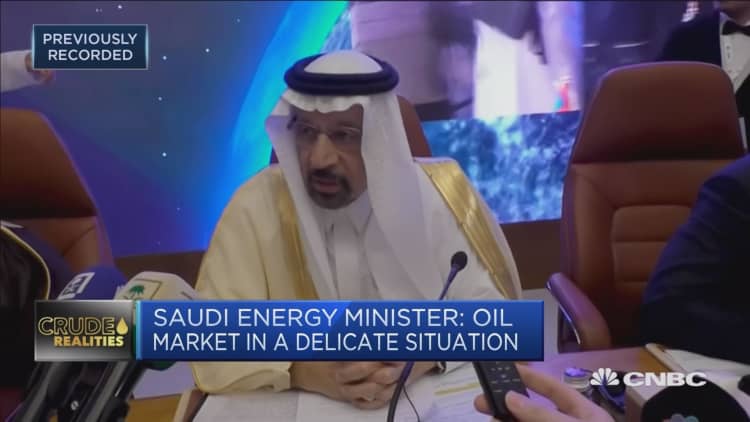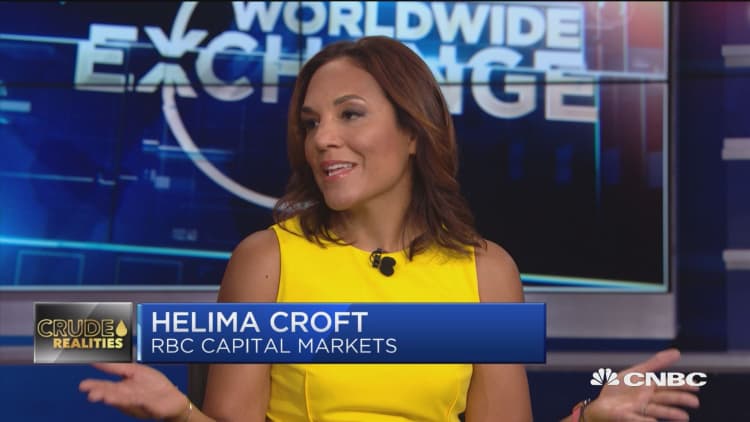Oil were mixed on Monday after hitting multi-week highs overnight, as OPEC indicated over the weekend that it was likely to maintain production cuts that have helped boost crude prices this year.
Escalating Middle East tensions provided further support.
U.S. West Texas Intermediate crude futures settled 34 cents higher at $63.10 a barrel. WTI reached $63.81 earlier, the highest since May 1.
Brent crude oil fell 24 cents to $71.97 a barrel, after the international benchmark for oil prices earlier touched $73.40, the highest since April 26.

Saudi Energy Minister Khalid al-Falih said on Sunday there was consensus among OPEC and allied oil producers to drive down crude inventories "gently" but he would remain responsive to the needs of what he called a fragile market.
The comments gave an early boost to oil prices on Monday, but futures pared gains throughout the session.
"Nothing substantial has gone out further, so the gain is leaking out of the market," said Gene McGillian, vice president of market research at Tradition Energy in Stamford, Connecticut. "The market doesn't want to get too far ahead of itself.
OPEC, Russia and other non-member producers, an alliance known as OPEC+, agreed to cut output by 1.2 million barrels per day (bpd) from Jan. 1 for six months to try to prevent inventories from increasing and weakening prices.
A gathering of the group's Joint Ministerial Monitoring Committee in Saudi Arabia over the weekend did not make any solid recommendations.
OPEC and its allies are due to meet in Vienna on June 25-26 for their next oil policy meeting. However, the group is considering moving the date to July 3-4, two OPEC sources said on Monday. The date change has not been officially confirmed, the sources said.
United Arab Emirates Energy Minister Suhail al-Mazrouei earlier told reporters that producers were capable of filling any market gap and that relaxing supply cuts was not the right decision.

OPEC data indicated oil inventories in the developed world rose by 3.3 million barrels month-on-month in March, and were 22.8 million barrels above their five-year average.
Adding to the bullish sentiment is rising tensions in the Middle East.
U.S. President Donald Trump threatened Tehran on Sunday, tweeting that a conflict would be the "official end" of Iran, while Saudi Arabia said it was ready to respond with "all strength" and it was up to Iran to avoid war.
The rhetoric follows last week's attacks on Saudi oil assets and the firing of a rocket on Sunday into Baghdad's heavily fortified "Green Zone" that exploded near the U.S. embassy.
Britain told Iran on Monday not to underestimate the resolve of the United States, warning that if American interests were attacked then the Trump administration would retaliate.

